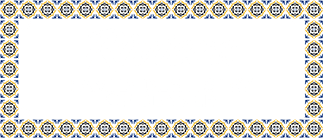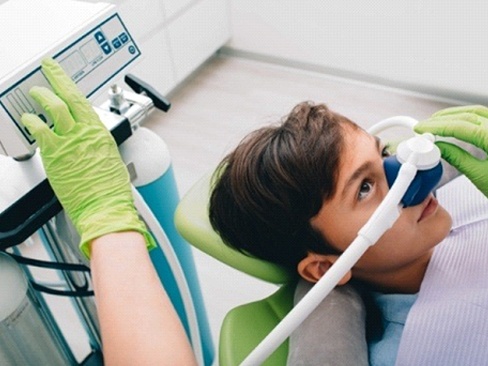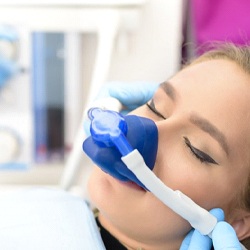
Sedation Dentist – Denver, CO
Don’t Worry;
Just Relax
Does the idea of feeling comfortable and at ease during your dental visit sound farfetched to you? Dr. Luke and Dr. Kingsberg want Riviera Family Dentistry of Denver to be a dental office where anyone can walk in feeling relaxed and confident about the treatment they’re about to receive. We have three different kinds of dental sedation available, with general anesthesia being offered in certain circumstances. Talk to us today to learn how to put your dental fears to rest with sedation dentistry in Denver, CO.

Why Choose Riviera Family Dentistry of Denver for Sedation Dentistry?
- Child-Friendly Sedation Offered
- Gentle, Personalized Dental Care
Nitrous Oxide Dental Sedation

Nitrous oxide, or “laughing gas”, is arguably the most famous form of dental sedation. You just need to breathe in the gas through a special mask, and you’ll soon enter a light-headed, euphoric state. We recommend it for anyone with mild anxiety, sensitive teeth, or a touchy gag reflex. Since it wears off more quickly than other forms of sedation, you won’t have to arrange for someone else to take you home; after a few minutes, you’ll be able to continue the rest of your day as normal.
Who Is a Good Candidate for Nitrous Oxide?

Have dental fear and anxiety made it difficult or nearly impossible for you to go through with the dental treatment you need? Do you just need a little something to “take the edge off” when getting dental work done? In either case, nitrous oxide in Denver can be a great option for you. It allows you to feel totally relaxed and at-ease while we do what we need to make your smile healthy.
That being said, anxious patients are far from the only ones who can benefit from nitrous oxide. It can also help patients who have:
- Extremely sensitive teeth or gums
- A strong gag reflex
- Trouble sitting still long enough to complete a dental treatment
- Difficulty getting numb from local anesthetic alone
- Negative past experiences at the dentist
- Fear of needles or the dental office environment
While nitrous oxide is incredibly safe, it may not be right for patients with certain medical conditions. These include pregnancy, respiratory disease, and sinus congestion. Some medications may also have negative interactions with the sedative. Before your procedure, we’ll review your medical history and your current medications to determine whether you’re a good candidate for nitrous oxide.
How Does Nitrous Oxide Work?

We administer nitrous oxide through a small mask or cannula that we place over your nose. You’ll inhale this clear, odorless gas and begin to feel calmer within minutes. You might even feel euphoric to the point where you get the giggles – that’s where the nickname “laughing gas” comes from!
The effects of nitrous oxide don’t take long at all to kick in. Once you’re fully comfortable, we can begin your treatment. Our team will closely monitor your vitals at all times so that we can adjust the dosage of the sedative at any moment if need be. Once your sedation dentist in Denver has completed your procedure, we’ll take away the mask or cannula and have you start breathing in regular air again. The warm, relaxed feelings should fade just as quickly as they appeared. This makes nitrous oxide an ideal solution for busy patients who need to get back to work or school after their appointment or who simply wish to drive themselves to and from our office.
Aftercare for Nitrous Oxide

We’ll keep an eye on you for a few minutes after your procedure to ensure that you’re feeling alright. It’s extremely rare for nitrous oxide to have any lingering side effects in eligible patients, but it never hurts to make sure. If applicable, we’ll provide aftercare instructions for your treatment during this time.
In most cases with nitrous oxide, you’ll be able to resume your day as you normally would following your appointment. While most other sedatives we offer leave patients feeling groggy for several hours afterward, nitrous oxide is perfect for relieving mild anxiety without forcing you to sacrifice an entire day.
Sedation Dentistry FAQs
Is Sedation Dentistry Safe for Kids?
Children often have a difficult time at the dentist’s, which makes sedation dentistry a natural fit for young people. Thankfully, sedatives dosed properly are perfectly safe for children.
Nitrous oxide is what’s used most often in children’s dentistry. We’re able to control the flow of gas throughout the duration of the procedure and will closely monitor your children’s vitals in order to ensure their complete safety.
The most your child could experience is some mild nausea, so just to be safe you may want to limit what they eat and drink immediately before their procedure.
What Does it Feel Like to be Sedated at the Dentist?
How you’ll feel during sedation depends on the drug you’re using. Nitrous oxide, for example, leaves patients feeling light and bubbly. It often causes them to smile or giggle during the treatment— precisely what you’d expect from a drug called “laughing gas.”
Is Sedation Dentistry Covered by Insurance?
Sedation dentistry is often considered to be elective, which means that it’s typically not covered by insurance. In most cases, you should expect to pay for your sedation out of pocket.
There are exceptions, however. Disabled patients may need sedation in order to suppress certain involuntary physiological responses that make dentistry difficult, like in the case of Parkinson’s or cerebral palsy patients. Others, like those with autism, can’t be expected to sit still without the use of sedatives.
There are also some longer treatments where sedation is considered a must, such as in the case of multiple tooth extractions. If any of these apply to you, you could potentially see your sedation covered by dental insurance.